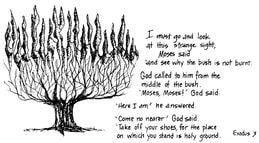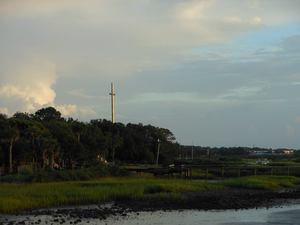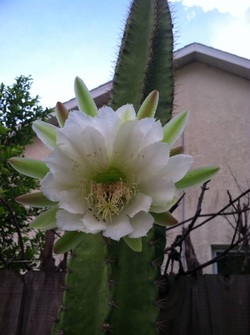 Moses lived an unusual life. Before he knew anything of what was happening to him, his mother made a life-altering decision for him by placing him in a basket and putting it in the water where Pharaoh's daughter might see it. The Princess could easily have agreed with her father's decree and had baby Moses killed. But she didn't. Later, when she took him to the palace to be raised in the royal household, Pharaoh could have had him killed. But he didn't. So many unlikely events came together in Mose's life to make him the man he became. Raised as Egyptian royalty, he became a murderer, a shepherd, a messenger, deliverer and leader. To the Egyptians he was a Hebrew, to the Hebrews he was Egyptian. A man without a country, he was a foreigner to all. In fact, he named his first child "foreigner". Having fled Egypt for the desert, he learned to be a Hebrew shepherd in Midian under the guidance of his father-in-law Jethro, a priest. He would have stayed there with his family and his flocks, but God had other plans. God had plans to use his royal Egyptian education, his Hebrew slave roots, the passion of the murderer and the compassion of the shepherd. God used all of Moses's life experiences to make him into the leader that he was. Not your typical career path. (For more details, read Exodus 2-3.) For Reflection: What experiences in my life have particularly made me into the person I am? Where do I see God's hand in my life? Let us pray. Father, I hadn't thought about the varied experiences of my life being put at your service. I thought they were just odd things that happened to me, some good, some bad, some I liked, some I regretted. However, I offer them to you now, as I offer myself to you, to use them as you will, and to help me become the very best that I can be in serving you.
0 Comments
 Many of us, at one time or another, have heard our mother say to our father, when we were in deep trouble, "Do you want to know what your child did today?" With that one pronoun she disowns us. We can't sink much lower in her eyes. We are definitely on her (bad) list today. It is time to hide from the wrath to come. It's the same situation in Exodus 32:7 - 14. God is disowning his people. He says to Moses, "Go down at once to your people, whom you brought out of the land of Egypt." They are no longer His people, whom He brought out of Egypt. No. Now they belong to Moses because after all God has done for them, they have created an idol for themselves and claimed it as their God. He even goes on to say, "Let me destroy them and then I will make you a great nation." Whoa. Moses, smart man that he is, picks up on this. He quickly reminds God that they are His people; He brought them out of Egypt; and He promised to make the descendants of Abraham into a great nation. He's not going back on his word, is He? And so God relents of the threatened punishment, so rightly deserved. Once again, God shows mercy in the face of gross disobedience. He keeps faith with a faithless people. For Reflection: Is there reason to disown us? Do we remember what God has done for us? Can we recall the promises He has made to us that have yet to be fulfilled? Are we able to count how many times God has shown us mercy? Our weapon against Satan is words, so what we have is a war of words. Some might not consider words to be very powerful. But we are not speaking of words of diplomacy. These are not the words of Secretary of State. We are speaking words with the same power as God's words of creation. When we speak, all of creation listens.
God's word did not go forth at the time of creation without effecting what he set forth to do. His word does not go forth void now (Isaiah 55:11). No, the word of God is living, active and sharp. It judges the thoughts and attitudes of the heart and applies to all of creation (Hebrews 4:12). Since we are praying again today on behalf of the persecuted Christians around the world, how then ought we to pray? We need to pray aloud and our words might be something like the following. As always, please feel free to add your own prayers. We command all man-made weapons to be silenced and broken and to never work again (Isaiah 54:17). We send the word of God into the hearts and minds of those who have a murdering spirit: you shall not kill (Exodus 20:13). We proclaim the word of God to all who worship false gods: you shall worship the Lord, the God who brought the Hebrew people out of the land of Egypt (Exodus 20;2-3). We command those with a spirit of hatred and covetousness: you shall not rape women, nor evict people from their homes (Exodus 20:14-17). We proclaim the word of God for all to hear: The Lord our God, the Lord is one. Love the Lord your God with all your heart and with all your soul and with all your strength (Deuteronomy 6:4-5; Mark 12:29). You shall love your neighbor as yourself (Mark 12:13).  Two more brave women, largely unsung, figure into the story of Moses. Jochebed and Miriam were Moses's mother and sister. Since the Hebrew midwives wouldn't kill the boy babies when they were born, Pharaoh ordered all Hebrew women to throw their newborn sons into the Nile River. Jochebed didn't throw her son into the river. Rather she wove a small boat for him and placed him in the river where she knew he would be found by someone from Pharaoh's household. Then she posted her daughter Miriam as a watchwoman to see what would become of him. When Pharaoh's daughter found him and wanted to keep the baby as his own, Miriam bravely stepped up and suggested that a Hebrew woman nurse him. So Jochebed got to keep him for a few more years (Exodus 1:22-2:10). Jochebed, had to give up her son twice. First, when she put him in the river. Second, when she sent him to live with Pharaoh's daughter. She desired life for her son enough to go through all that so that he could live. Shiphrah and Puah had to stand up to Pharaoh and disobey his orders. Miriam, just a slave girl, had to speak to the princess of the land and make a suggestion. It took the courage of these four women to bring to life a man who would change the world. Without their tenacity, Moses's mission would not have come to fruition. For Reflection: What sacrifices or decisions have I made that I didn't understand at the time, but later realized they made a big difference in my life? When have I had to be courageous? Let us pray. Lord, I struggle to be courageous like Shiphrah and Puah, Jochebed and Miriam. I don't know that I could defy someone as powerful as Pharaoh if an unlawful order is made. Would I be as resourceful as Jochebed? As brave as Miriam? I don't know. Many Christians around the world today are under persecution as powerful as that of Pharaoh, Lord. Help me to stand with them in prayer at least. (Note: Many Christians will be standing in prayer for persecuted Christians in various nations on August 1. Won't you join us in prayer?)  How important is being mentioned by name? Often at the end of an event you hear thanks being given to those people who helped to organize it and who gave their time to make sure all in attendance were well taken care of. Rarely does the speaker have the opportunity to thank everyone by name. In Exodus 1, two women are mentioned by name. Because the Hebrew slaves were increasing in numbers and strength, Pharaoh became fearful of an uprising. He told the slave masters to work them ruthlessly. And then he ordered the Hebrew midwives to kill the baby boys that were born. But the midwives, Shiphrah and Puah, refused to do that. When Pharaoh discovered this, he summoned them for questioning. No doubt two slave women brought before the king were afraid, but they stood up to him and were spared their lives. Only two midwives were named in Exodus though it is more than likely that many midwives served the Hebrew women. Shiphrah and Puah were probably the leaders among the midwives and that's why they were brought to Pharaoh. And so they are mentioned in the account, like the organizers of an event, as a way of thanking them and their coworkers for their service. These women, who were not afraid to stand up for what they knew to be right, saved lives and entered the pages of history. For Reflection: We are all descended from a long line of ancestors. What courageous people do we have to thank for the gift of life? Who crossed a sea or fought a war or stood up to a king that I might someday be born? Let us pray. God, I thank you for Shiphrah and Puah and their bravery. I thank you for all of my ancestors - my ancestors in life and my ancestors in faith. I thank you for the few I know by name and the many whose names I don't know. I thank you for all those who struggled and persevered for my sake. |
AliceI started this website and blog on May 1, 2012. I am a Catholic who has been in ministry for many years. I first developed what I would call a close relationship with Jesus in the early 1970s. Ever since then I have been praying with people for healing and other needs. It is because I have seen so many of these prayers answered that I am so bold as to offer to pray for you individually through this website and phone line. Archives
July 2021
Categories
All
|
Proudly powered by Weebly

 RSS Feed
RSS Feed